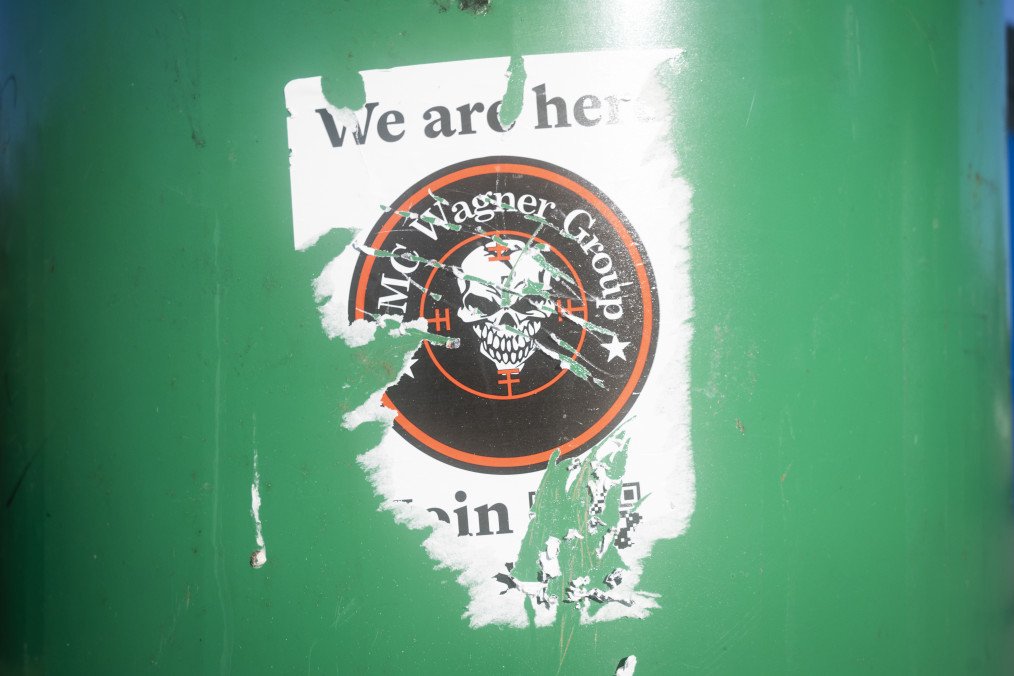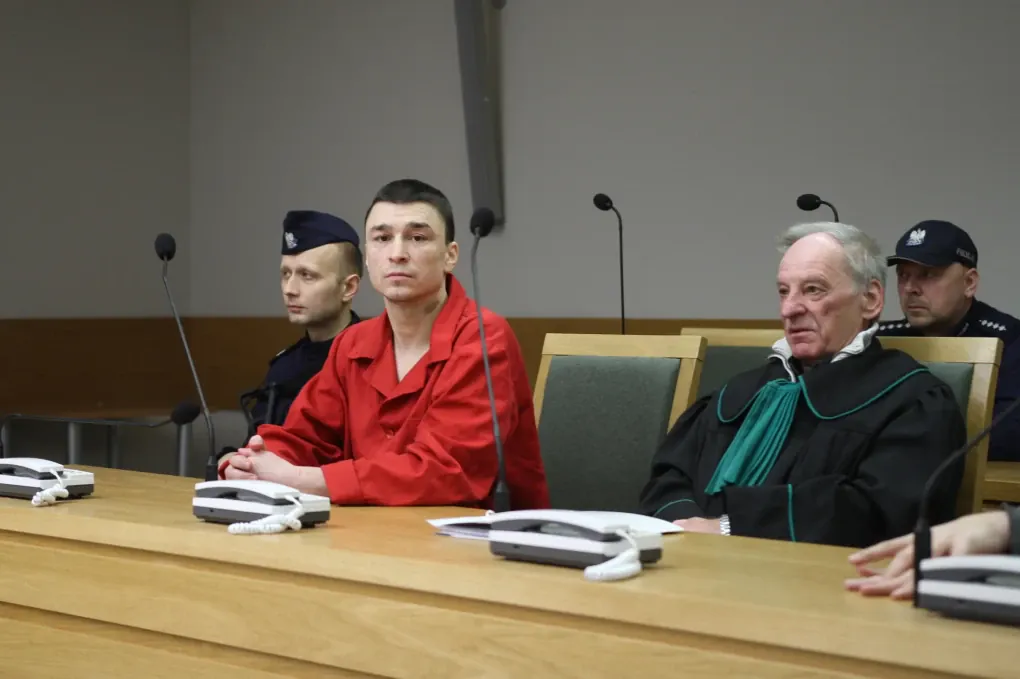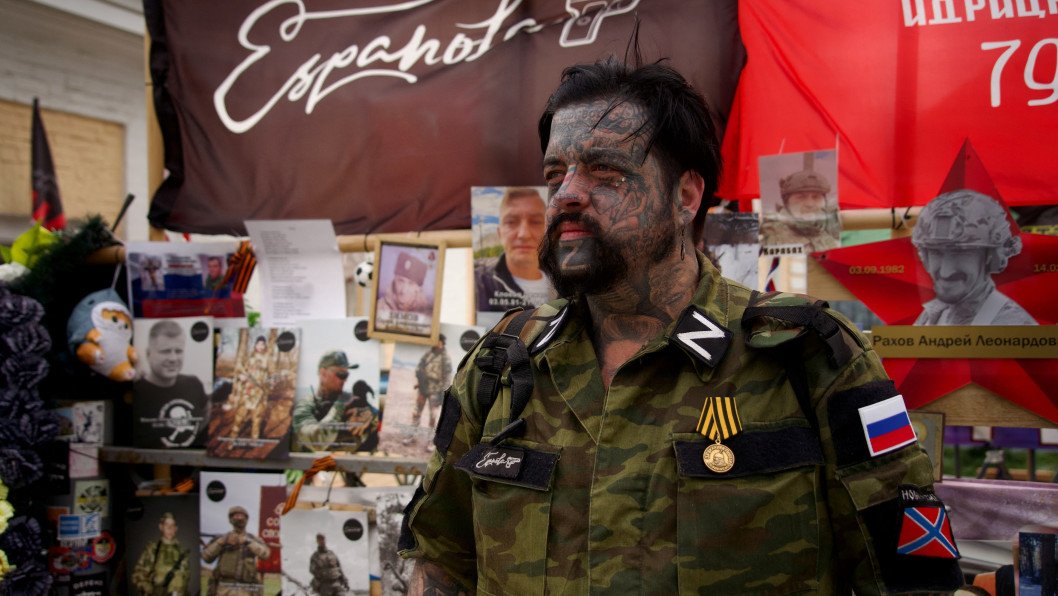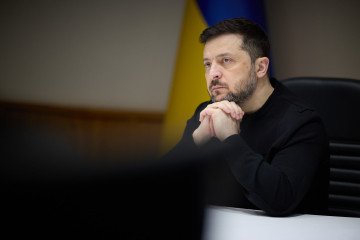- Category
- Latest news
Russia-Linked Operatives Sentenced in Poland for Wagner Recruitment Push

In mid-February 2025, a Polish court sentenced two Russian nationals, Alexey Titov and Andrey Gontarev, to five and a half years in prison for distributing pro-Wagner Group stickers in Warsaw and Kraków. The stickers featured the Wagner logo, a QR code linking to a recruitment site, and the message: “We are here. Join us.”
At the request of Meduza, Polish journalist Agnieszka Pikulicka-Wilczewska followed the trial and documented how authorities identified the suspects, who were closely linked to Russian nationalist circles.
The case drew attention as a rare example of direct Russian influence activity on Polish soil. The men were arrested in August 2023 after being spotted by locals placing stickers in tourist areas. They were later caught in Warsaw with materials in hand.

Though the act itself was minor, the court ruled that the broader context—Russia’s full-scale war against Ukraine and ongoing hybrid threats—justified a national security response. Judge Ewa Karp-Sieklucka emphasized that the aim was to sow doubt in Poland’s ability to defend itself, calling it part of a “hybrid war” led by Russian intelligence services.
The pair denied charges of terrorism and espionage, but evidence presented in court linked them to far-right Russian networks. Prosecutors revealed that they had received instructions from handlers likely based in Russia, avoided surveillance, and were told not to interact with Ukrainians. One of their alleged recruiters was Stepan Krivosheev, a figure connected to Konstantin Malofeev—a Russian “orthodox oligarch” known for financing pro-Kremlin propaganda and military ventures.
Investigators found that both men were involved in the nationalist “Double Headed Eagle ” group and had raised funds for Spartak Moscow football fans fighting in Ukraine. Titov was photographed at the funeral of Daria Dugina, daughter of far-right ideologue Alexander Dugin . Authorities also uncovered falsified passports, scans of documents featuring Dugin and Wagner founder Yevgeny Prigozhin, and evidence of prior travel to Berlin and Paris, where they allegedly posted NATO-critical stickers.

Prosecutors argued the operation was deliberately timed ahead of Poland’s large-scale Armed Forces Day parade, intended to undermine public confidence. Warsaw authorities have since launched proceedings against four suspected handlers believed to be operating from Russia.
Poland has become a key target of Russian hybrid operations since the start of the full-scale war in Ukraine. According to recent studies, acts of sabotage and influence activities attributed to Russia across Europe nearly tripled in 2024 compared to the previous year. In Poland alone, 42 individuals were arrested in 2024 for activities linked to Russian or Belarusian interests.
Experts say the case reflects a broader shift in Poland’s legal and security stance. New legislation passed in 2023 broadened the definition of espionage to include acts like propaganda graffiti or distribution of hostile materials. Minimum sentences were raised, with authorities aiming to deter potential collaborators.
“This is an innovative approach to contemporary international threats looming in Poland and in all of Europe due to the aggressive and imperialist policies of the Russian Federation,” said prosecutor Tomasz Dudek. “The goal is always the same: to discredit, ridicule, and weaken the social, political, and economic potential of another country by taking actions that are limited only by our imagination.”
Vincent Seversky, a former Polish intelligence officer, noted that the real aim of the mission might not have been the stickers themselves, but the psychological impact. “The point is to cause a specific psychological effect in society and in the information space. It’s about sowing confusion, doubt, [and] signaling to Polish society: Watch out, we’re nearby.’”
-c6522ae9e5320af1cc92504c0aaa1b34.png)








-72b63a4e0c8c475ad81fe3eed3f63729.jpeg)